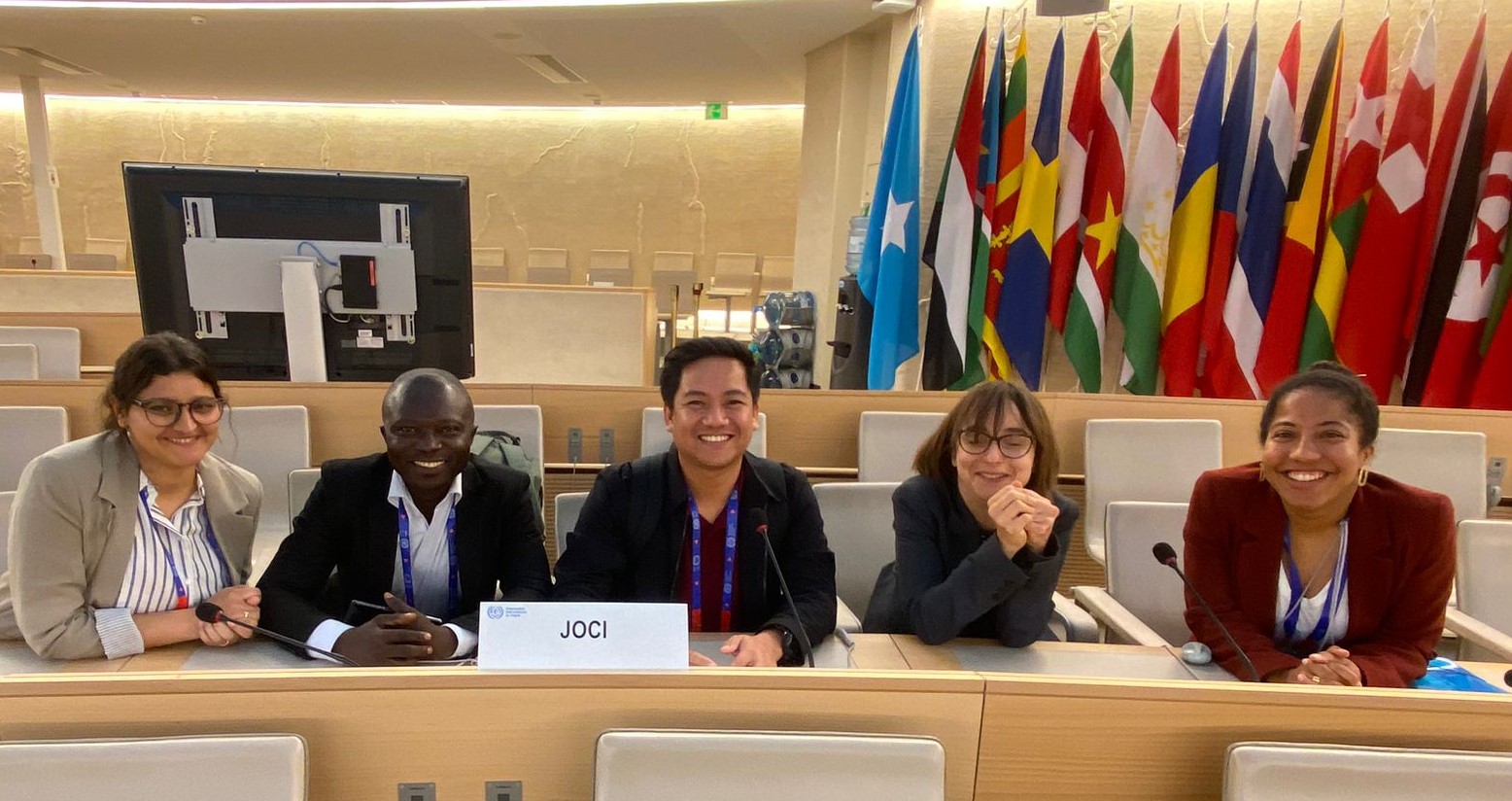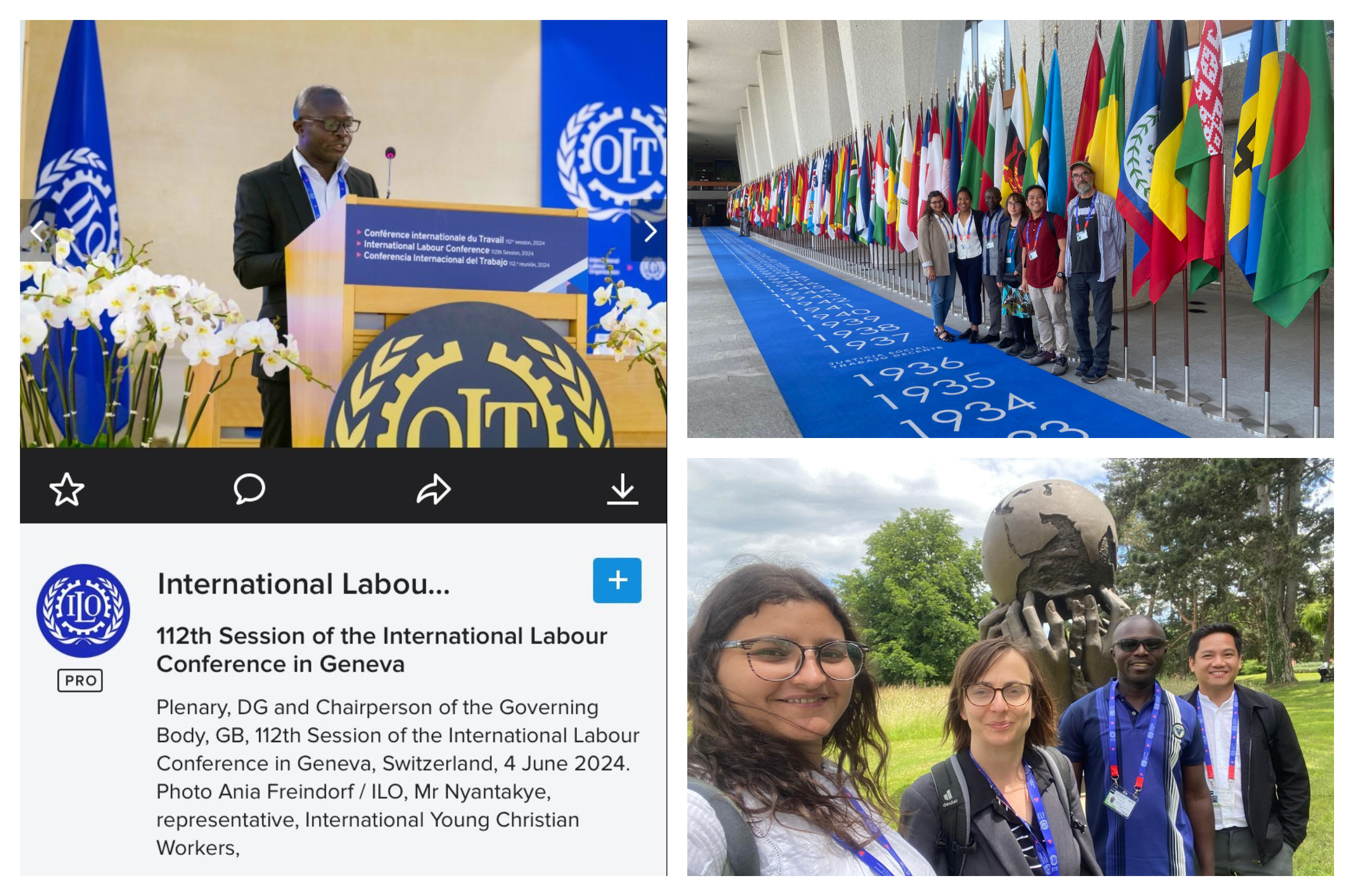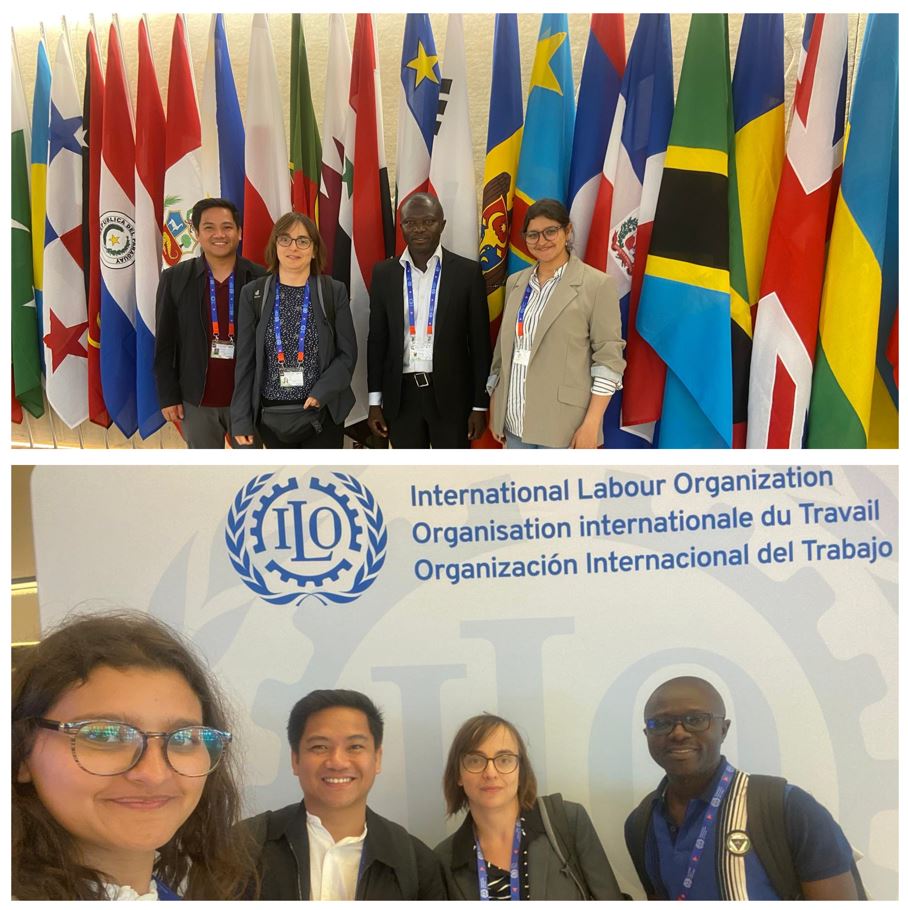
The IYCW took part in the 112th session of the International Labour Conference from June 3 to 14, calling for the renewal of the social contract that will take us one step closer to a new society based on solidarity, peace and justice, where human dignity is at the heart of the economy.
In our statement, we reaffirmed that we need a social contract that will secure safe and healthy working environments, access to social protection regardless of socio-economic backgrounds, including access to health, essential benefits and quality education for young workers.

We also highlighted three testimonies from Egypt, India and Venezuela that illustrate the social injustice that young workers face on a daily basis:
“I work 12 hours a day in a supermarket, 15 hours a day in peak season, with only half an hour for lunch or a break, for a very low salary. I was forced to stop my education to help my family meet its daily needs.” – Rahma, young worker from Egypt
“The minimum wage doesn't even reach $4 a month. Therefore, if they pay us $80 a month in a store, they already believe that they have the authority to pressure us to do more work, so we have to get used to it and if we don't like it, they throw us out.” – Nayeliz, young worker from Venezuela
“My parents died recently and I'm an orphan now. My dream was to work in the IT field, but without my parents and with no income, I shifted my studies to mechanics, and I also work in a wedding band, a seasonal activity that enables me to meet my needs.” – Arun, young worker from India
In light of this social injustice, we called to go beyond just providing band-aid solutions for those suffering from the changes underway, and to implement measures that drive real change towards universal human rights, equal access to opportunities, fair distribution of resources and just transition.
In its speech, the IYCW reaffirmed its commitment to promoting social justice through a renewed social contract. As such, this social contract must include the voices of young workers in decision-making in order to advance democracy at work. It is crucial to create a more inclusive and equitable world of work by recognizing the efforts of those unrecognized or under-represented workers' organizations and to include them in the social dialogue.
We concluded our statement by insisting that “the social contract must ensure labor protection for all workers by guaranteeing freedom of association, including for migrants, refugees, domestic workers, rural workers and informal workers, and by providing them with a decent living income and social benefits.”


 English
English  Español
Español  Français
Français